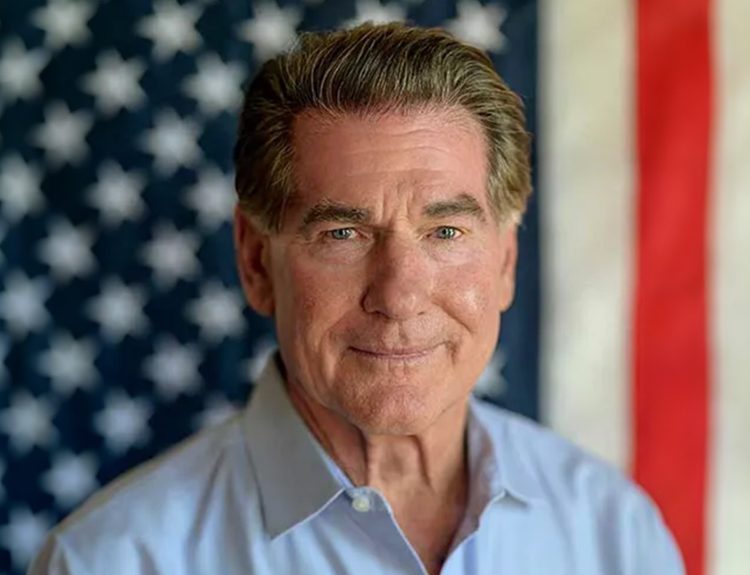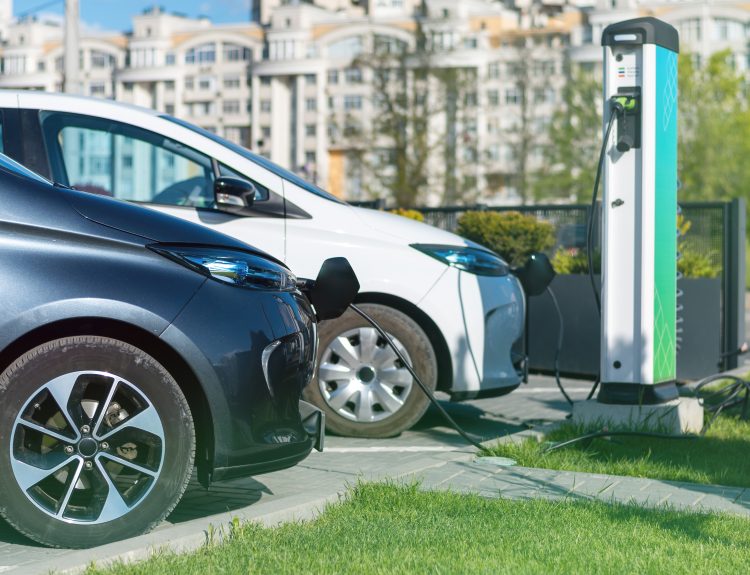The Electoral College has been on life support for years, but its demise may finally be imminent. With Maine becoming the latest state to join the National Popular Vote Interstate Compact (NPV), the antiquated and undemocratic Electoral College has never been closer to its overdue end.
This week, Maine’s governor allowed a law joining the NPV to take effect, meaning states totaling 209 electoral votes have now signed on to pledge their votes to the national popular vote winner. With 270 being the magic number needed to win the presidency, the NPV needs just 61 more to render the Electoral College obsolete.
What Is the Electoral College’s Function?
The Electoral College is a body of electors that chooses the president and vice president of the United States.
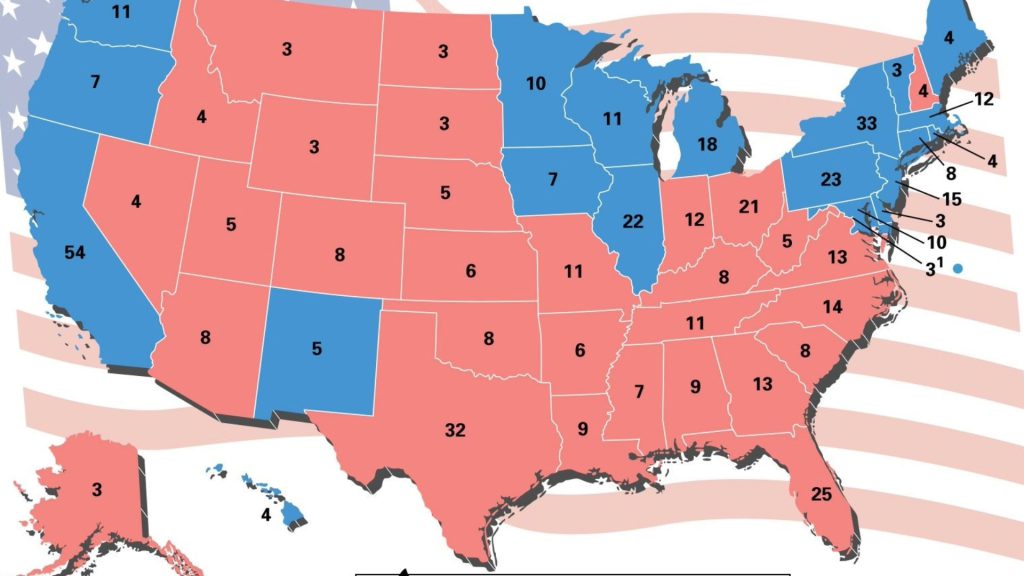
The founding fathers established the Electoral College in the Constitution as a compromise between the election of the president by a vote in Congress and the election of the president by a popular vote of all citizens.
How the Electoral College Works
Each state gets several electors equal to the number of its U.S. representatives and two senators. Currently, there are a total of 538 electors. A candidate needs 270 electoral votes to win the presidency.
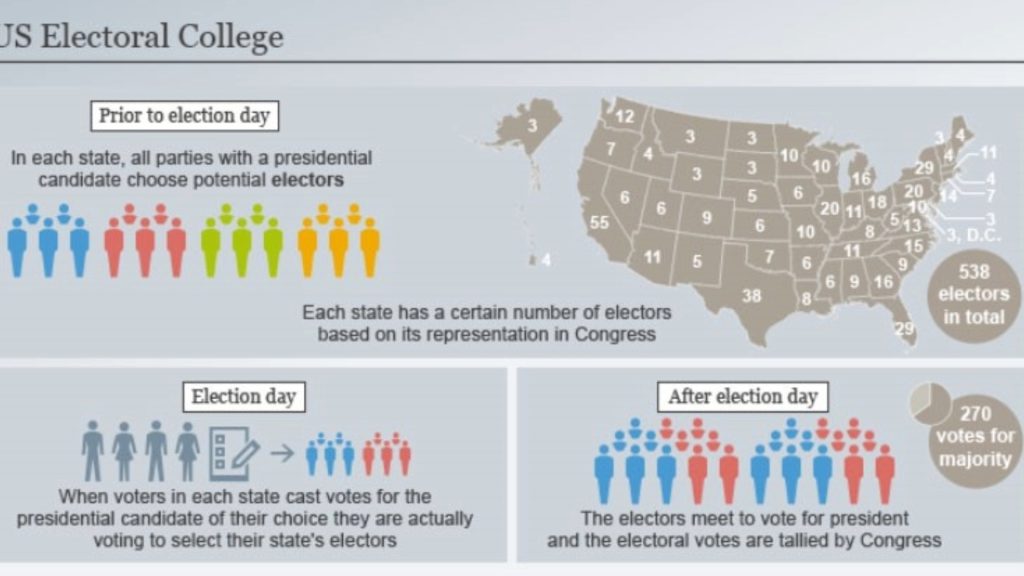
When citizens vote for a presidential candidate, they vote for a slate of electors pledged to that candidate. Whichever candidate wins the state gets all the electors of that state.
Problems with the Electoral College
The Electoral College system can result in a president not winning the national popular vote. This happened in 2000 and 2016. Critics argue the system is outdated and can discourage voter turnout.
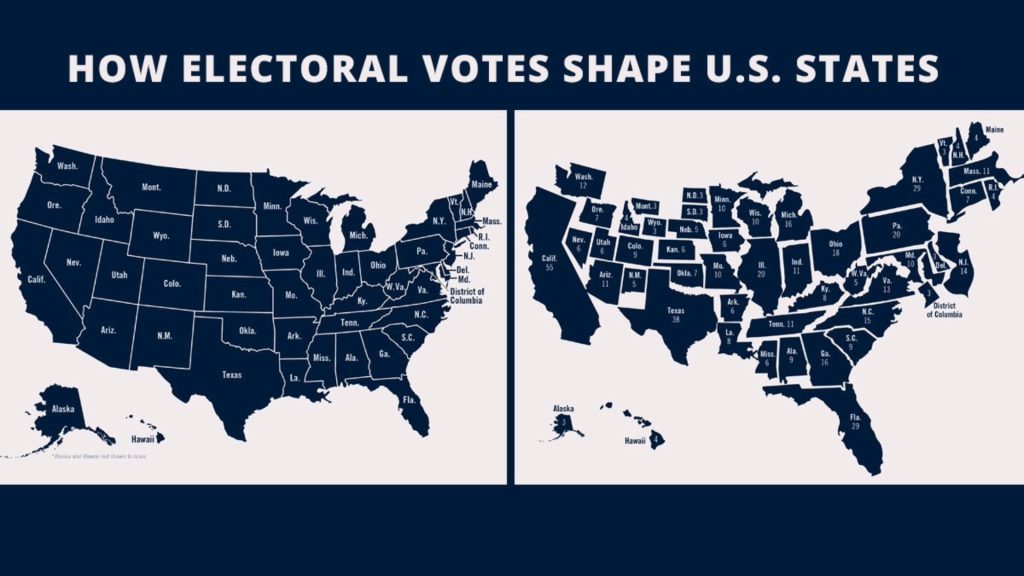
On the other hand, supporters argue the Electoral College system encourages candidates to build broad coalitions and protects the influence of smaller states.
Arguments for and Against the Electoral College
Supporters argue it encourages candidates to campaign in more states, gives smaller states a voice, and prevents cities from dominating elections.
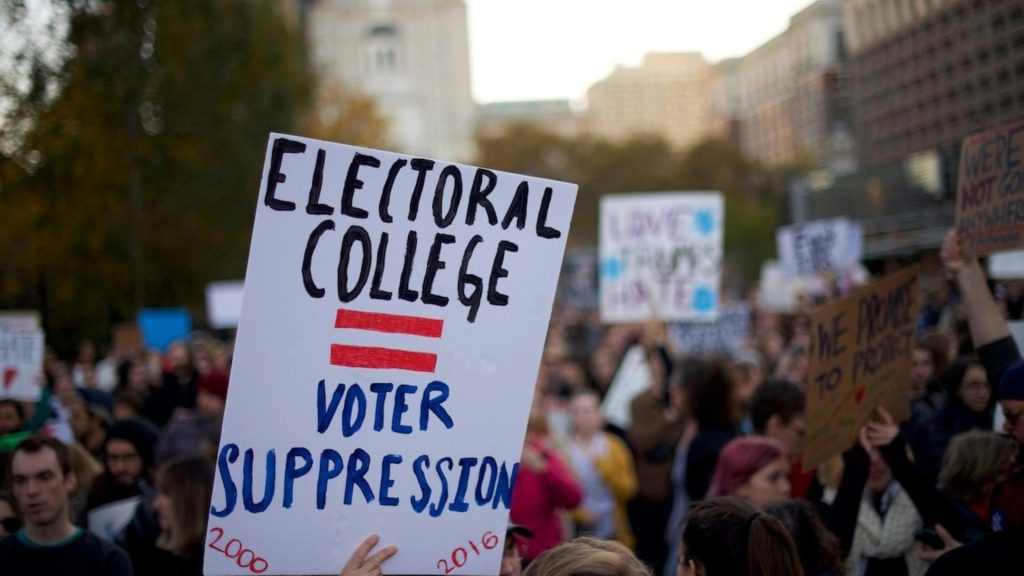
However, others argue it distorts the democratic principle of majority rule and disproportionately favors certain states.
The National Popular Vote Interstate Compact (NPV)
The National Popular Vote Interstate Compact (NPV) is an agreement among several states and the District of Columbia to award their electoral votes to whichever presidential candidate wins the overall popular vote nationwide.
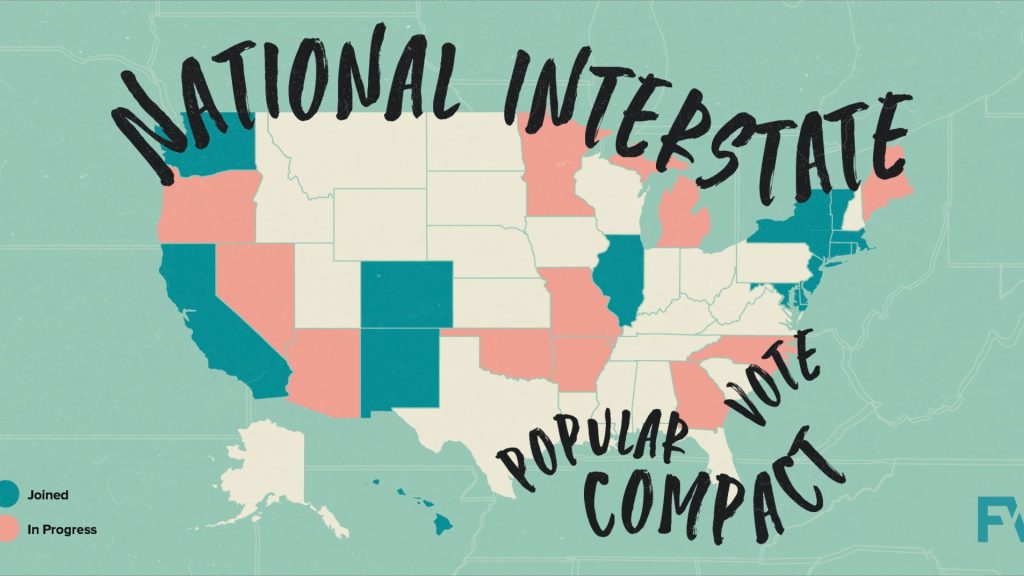
Once states with a combined 270 electoral votes join the compact, the candidate who receives the most popular votes in all 50 states and D.C. would win the presidency.
How The NPV Works
Under the compact, the presidential candidate who wins the national popular vote would receive all the electoral votes of the compacting states.
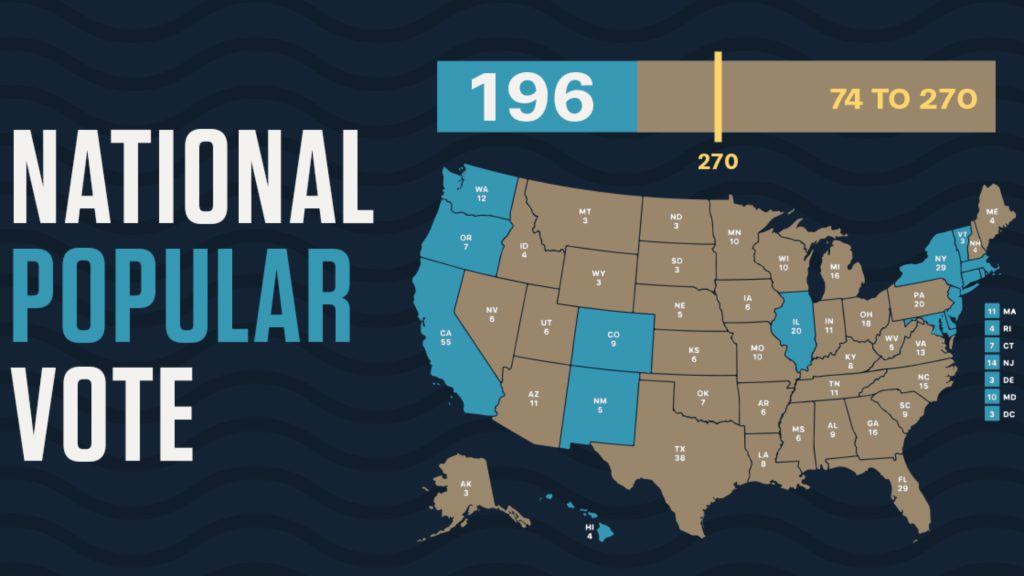
This would ensure that the candidate who receives the most votes nationwide is elected president.
Why The NPV Needed?
In two recent elections (2000 and 2016), the presidential candidate who won the national popular vote lost the election because they did not win enough electoral votes.
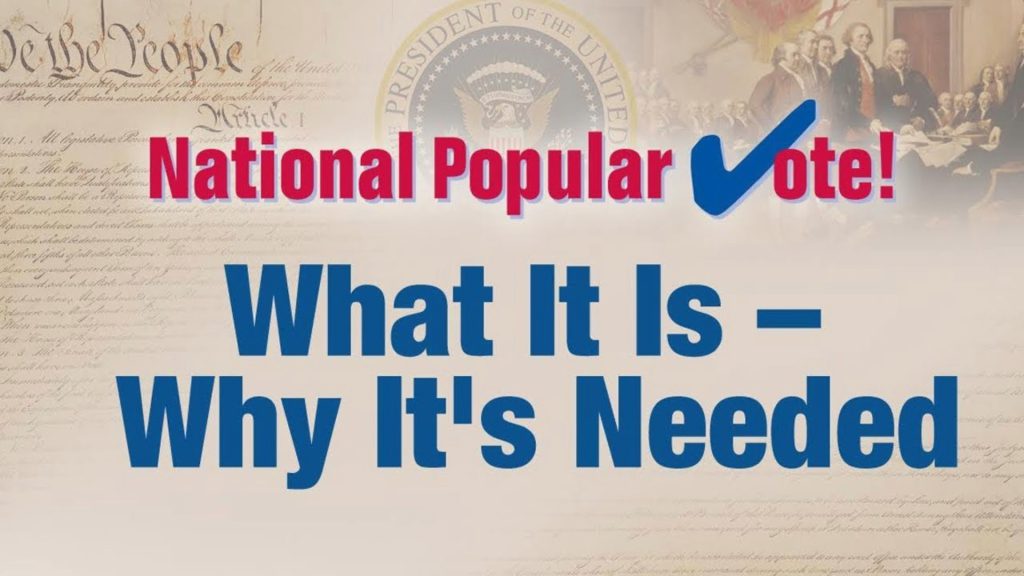
Critics argue this system goes against the democratic principle of majority rule and that candidates focus their campaigns only on swing states while ignoring states that are solidly for one party.
Where the NPV Stands Now
The National Popular Vote Interstate Compact (NPV) has gained momentum recently. With Maine’s recent adoption, the compact has 209 electoral votes among 15 states and Washington, D.C.
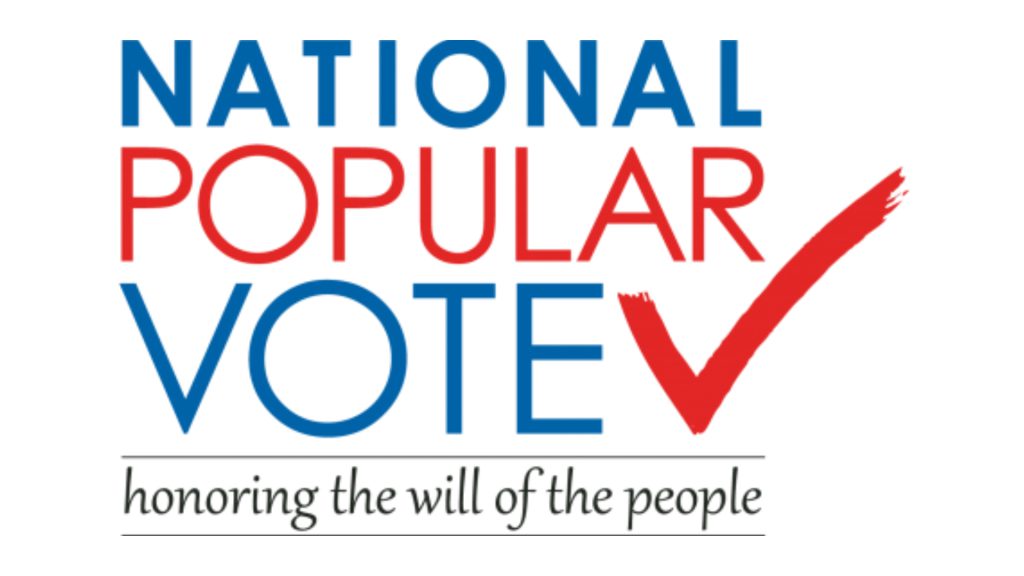
Only 61 more electoral votes are needed for the compact to take effect. Several states are poised to join the compact soon, putting the end of the Electoral College within reach.
What Happens if the NPV Reaches 270 Electoral Votes
Should the National Popular Vote Interstate Compact eventually reach the 270 electoral votes necessary to activate, the consequences would be momentous.
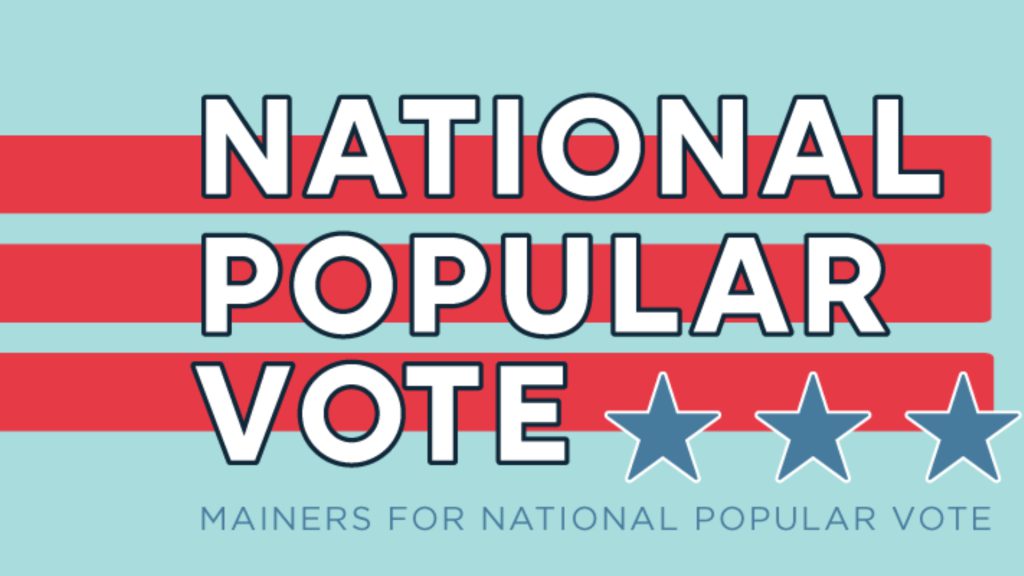
For the first time in U.S. history, the presidential candidate who receives the most votes from citizens across all 50 states and D.C. would win the election.
The National Popular Vote Interstate Compact
The National Popular Vote Interstate Compact (NPVIC) is an agreement between U.S. states to award all their electoral votes to whichever presidential candidate wins the overall popular vote nationwide.
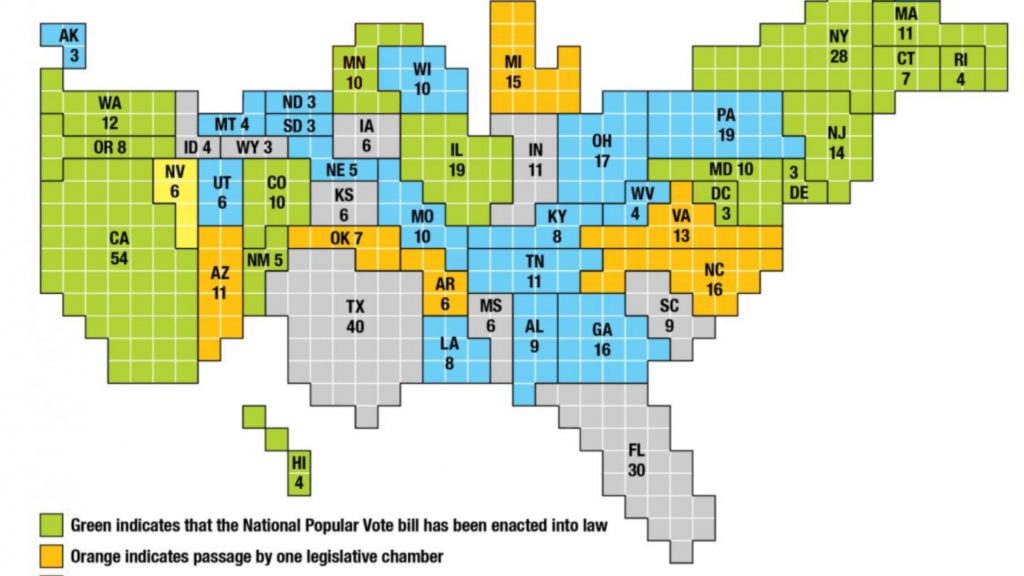
The path to 270 Electoral College votes looked difficult, even fairly recently. With Republicans controlling most state legislatures and governorships since 2010, its prospects appeared bleak.
Democrats Have Been Pushing The NPVIC Approval
If Michigan, with a Democratic legislature and governor, adopts it as expected, that would bring the total to 224 Electoral Votes.
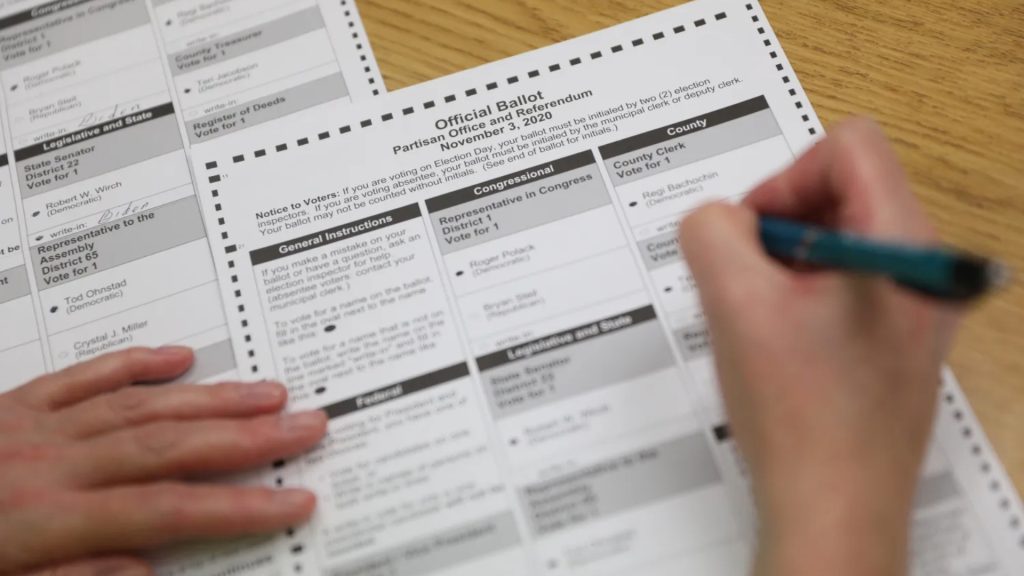
If Democrats regain control of state legislatures in Wisconsin, Pennsylvania, and Arizona this fall, a real possibility that could put 40 more votes in play.
A Long Road Ahead
The conservative-dominated Supreme Court, itself the product of the Electoral College, will likely have the final say on the compact’s constitutionality.
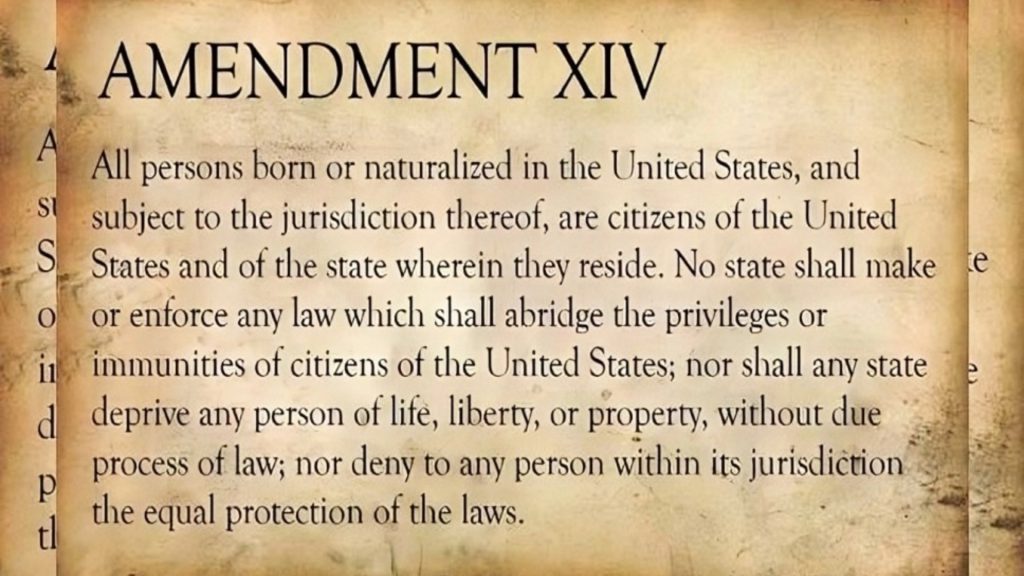
States have the right to choose electors as they wish, but awarding them to a candidate losing the state popular vote could violate the 14th Amendment, and such an interstate agreement may contravene the Compact Clause.
Legal Challenges Are Likely
The effort to enact the National Popular Vote Interstate Compact faces significant legal hurdles before it can take effect.
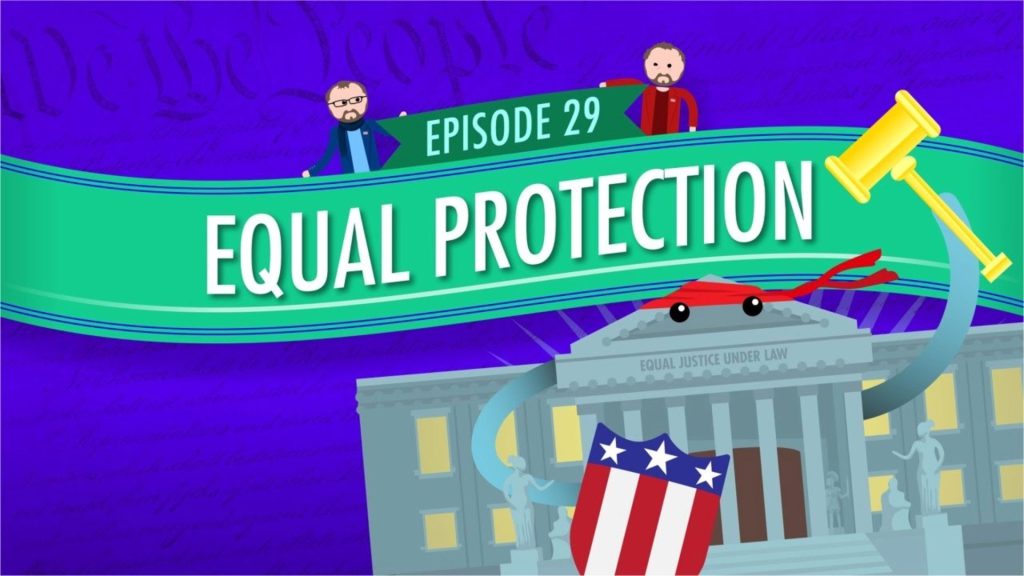
Though states technically have the right to appoint electors as they choose, awarding them to a candidate who loses the state popular vote could violate the 14th Amendment’s Equal Protection Clause.
The Supreme Court Will Probably Have the Final Say
The increasingly conservative Supreme Court will likely rule on the constitutionality of the interstate compact.
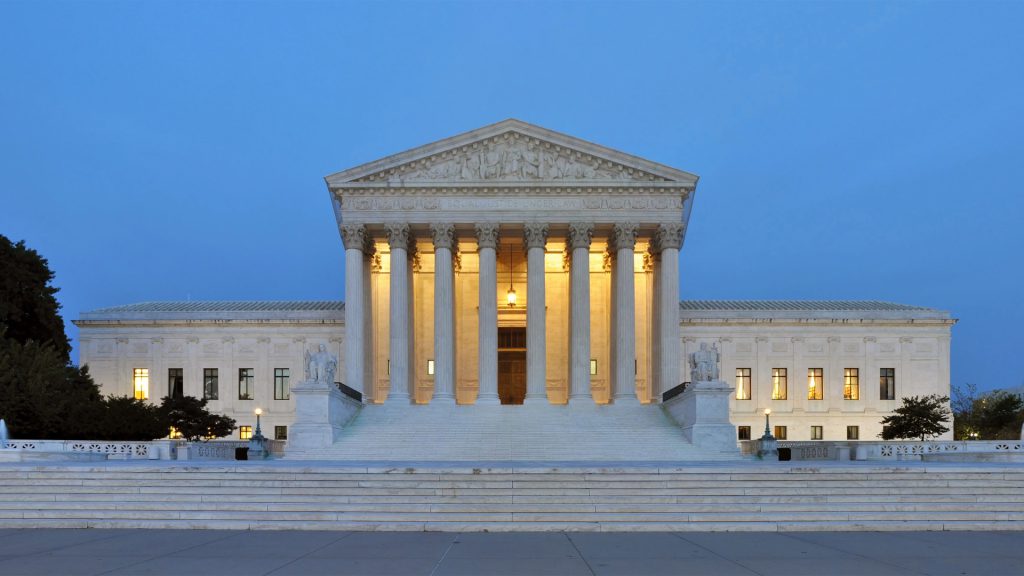
The court has a history of enhancing GOP power at the expense of Democrats. Regardless of the legal merits, the court would likely view abolishing the Electoral College as contrary to Republican political interests.




